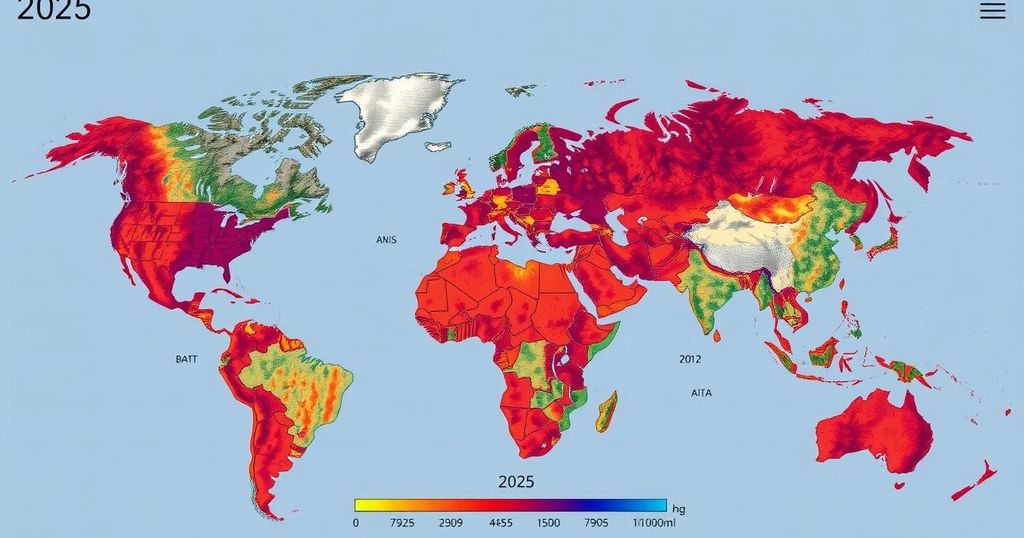Electoral Volatility: Analyzing the Future of Incumbents in 2025

2024 marks a tumultuous year for incumbents in developed democracies, with all governing parties losing vote share due to inflation and changing voter loyalty. This volatility reflects a generational trend toward lower partisan loyalty, making it increasingly challenging for incumbents to secure their positions. Upcoming elections in 2025 appear similarly daunting, raising questions about the future of political stability and the relationship between governments and voters.
The year 2024 has been dubbed the worst for incumbents in developed democracies, marking a significant shift in voter attitudes. Traditionally, incumbency provided a strong advantage, but recent elections signal a departure from this norm, with voters favoring change over familiarity. Factors such as inflation have heavily influenced voter sentiment, leading to a wave of electoral defeats for those in power, particularly across Europe and North America. Academic analysis indicates that a generational shift in partisan loyalty is contributing to a new political landscape where voters are more discerning and willing to switch allegiances, akin to consumer behavior. As attention turns to upcoming elections in 2025, the trend appears to favor non-incumbent candidates, suggesting a continuing volatility in political dynamics.
The article explores the significant electoral challenges faced by incumbents in 2024, attributed mainly to rising inflation and a growing discontent among voters. This year has witnessed a historical decline in vote shares for all governing parties in developed countries, the first occurrence of its kind. Furthermore, it highlights the changing nature of voter behavior, where low partisan loyalty and an expectation for frequent change have created an unpredictable political environment. The implications of these shifts are crucial for understanding the potential outcomes for not just 2025, but the future of democracies globally.
The electoral trends observed in 2024 indicate a crucial turning point for incumbents in wealthy democracies, suggesting that unless they adapt to the evolving voter expectations and address inflation effectively, their tenure may be increasingly at risk. With the ongoing volatility in political allegiance, the 2025 electoral landscape will likely remain hostile for incumbents, compelling them to reassess their strategies. Ultimately, the continuity of democracy requires a balance between rewarding and punishing elected officials, ensuring that voter engagement does not devolve into purely punitive measures.
Original Source: www.cnn.com






